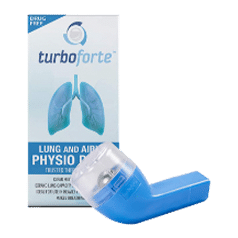
Bronchitis is the inflammation of the larger airways in your lungs (bronchi) usually caused by an infection from a virus and is a form of Chronic Obstructive Pulmonary Disease (COPD). These main airways are responsible for carrying oxygen to your lungs. When inflamed or irritated, these airways will produce more mucus than usual which causes our body to cough in order to attempt to shift the extra mucus.
Acute bronchitis is the temporary inflammation of the airways from a viral infection, causing a cough and chest congestion. It usually lasts up to 3 weeks and comes after a common cold, sore throat, or the flu. Chronic bronchitis is the repeated bouts of bronchitis over years and an extended recovery period of up to three months. It is often linked to smoking.
What are some possible symptoms of Bronchitis?
- A hacking cough
- Production of clear, white, yellow-grey, or greenish mucus (phlegm).
- Fatigue
- Sore throat
- Shortness of breath
- Aches and pain
- Fever
- Wheezing
How do you get Bronchitis?
Acute Bronchitis often develops from a cold or other respiratory infection and is very common. Chronic bronchitis is most often caused by smoking, but those who have frequent exposure to irritating chemicals or fumes in the workplace or at home are at higher risk.
Those with weakened immune systems e.g. the elderly, infants, and young children, or those with a preexisting lung condition like Asthma, are more likely to contract Bronchitis.
During Winter, Bronchitis cases rise as the common cold or flu becomes more contagious, so it is important to wash hands regularly, wear a surgical mask if frequently exposed to irritants, and get vaccinated against influenza to reduce the risk of contracting a viral infection.
How do you treat it?
For cases of acute bronchitis, lots of rest and frequent fluids are recommended. However, if symptoms persist, your doctor may recommend an inhaler and other medications to reduce inflammation and open narrowed passages in your lungs.
A drug-free alternative to cough medicine is a mucus clearance device to alleviate the pressure on the airways and improve breathing quality. A popular lung cleaning treatment is an oscillating positive expiratory pressure (OPEP) device.
How can an OPEP device help those with Bronchitis?
The Turboforte Lung Physio is a handheld, drug-free lung relief device that helps mucus clearance and strengthens airways. The respiratory flutter valve device operates through a precisely weighted stainless steel ball that creates vibrations through your airways when you exhale through the device. These vibrations are carried through your respiratory system, opening up your lungs and clearing mucus from your airways for optimized breathing.
The flutter device dislodges mucus from bronchial tubes and allows you to cough it up, clearing your airways and reducing inflammation.
Turboforte Lung Physio helps to alleviate the symptoms of both acute and chronic Bronchitis, allowing you to breathe easier and enjoy a better quality of life, all without the side effects of drugs.
Can it be trusted?
Registered and approved by the U.S. Food and Drug Administration (FDA), the Australian Governments Therapeutic Goods Association (TGA), and the European Union’s (EU) standards for health and safety, the Turboforte Lung Physio is medically and globally trusted.
Turboforte Lung Physio has been a trusted therapy since 2009. It has been recommended by healthcare professionals and used in hospitals worldwide. It is proudly Australian Owned and is manufactured using strict quality control with medical grade materials.
Turboforte is easy to use, non-invasive, and medically approved. Read about how Turboforte has helped thousands in our customer testimonials here or purchase one for yourself today.
While Turboforte is a drug-free, all-natural way to help and can be used in conjunction with your usual treatment regime, always seek the guidance of your doctor or other qualified health professional with any questions you may have regarding your health or a medical condition. Never disregard the advice of a medical professional, or delay in seeking it because of something you have read that contradicts your doctor’s personal advice.




